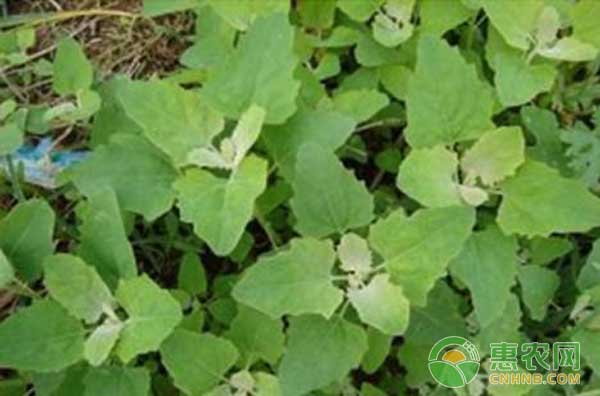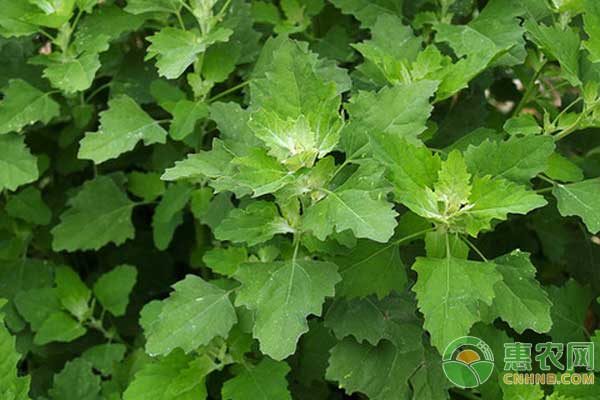Wild gray vegetables are weeds on the roadside of the field. The tender stems and seedlings can be eaten as vegetables, and they are delicious and nutritious. The wild gray vegetables are very adaptable and are semi-hardy vegetables. Wild ash can also be used to feed livestock, and seeds can be used for oil extraction.
First, the variety selection
Large leaf variety
The leaves are dark green, rhomboid-ovate, 4 to 6 cm long, 3 to 5 cm wide, and green in stems.
2. Fine leaf varieties
The leaves are light green, lanceolate, 2 to 4 cm long and 1.5 to 2 cm wide. Fine reddish stripes.

Second, reproduction
It is propagated with seeds and grows fast. It can be planted several times a year. Collect seeds in the fall to dry. The sowing season is best in spring.
Third, land preparation
After pushing the ground, apply 2000~2500 kg of soil-fertilized fertilizer or decomposed human and animal manure as base fertilizer, plow the flattening, and make silicon about 130 cm wide.
Fourth, sowing
After flattening the surface, spread it or broadcast it. When it is spread, it should be removed. After the sanding, the surface layer of the building should be lightened and stepped on, or the plate should be used for suppression, or swept with a broom to make the seeds fall into the soil. The line spacing of the ditching is 20 cm. After sowing, the soil is covered with soil or covered with a layer of soil. When it is dry, it is poured out once and drained for 4 to 5 days. Seedlings can also be grown from early October to December. Planting 0.5~1 kg per square meter. The seedling height is 8~10 cm, and it can be removed when there are 3~4 leaves. The row spacing of the transplanted plants was 20 cm × 30 cm, and 5,500 to 6,500 plants were planted per 667 m 2 .
V. Field management
Intercropping
After the emergence of seedlings and time seedlings, otherwise the seedlings are crowded. 5 to 6 true leaves can be sold.
2. Fertilizer management
Wild gray vegetables have strong living ability, rare pests and diseases, and grow fast in fertile and moist soil. After applying base fertilizer, they can no longer topdress, and water can be poured in time without rain. After each seedling or picking tender seedlings, 20%~30% organic fertilizer liquid can be fertilized and fertilized, and 500~1000 kg per 667 square meters is poured into 5~10 kilograms of urea.

Sixth, harvest
When the seedling height is 10~15 cm and there are 10 true leaves, the young stems and leaves can be pulled out. The first harvest of both fat and vegetable should be picked from 4 to 5 leaves at 5 to 6 leaves. It can be harvested once every 15~20 days, and it can be harvested in batches.
Seven, keep seed
The distance between the plants kept in the field is 20~10 cm, and the leaves are not picked. Due to the long flowering period of wild gray cauliflower, the seeds are not matured, and the seeds are matured and harvested in batches from May to June. Spread the plants with sputum or plastic cloth, beat the mature seeds, collect the seeds, and store them by threshing.
The artificially planted wild ash is better than the wild wild ash, and it is more secure in terms of safety. Wild gray vegetables can also be used for medicinal purposes, which can treat wind-heat colds, diarrhea, etc., so farmers can try it!
The main functions of sweeteners in food are as follows [2]:
(1) Taste: Sweetness is one of the indicators of many foods. In order to make food and beverages taste palatable, a certain amount of sweetener needs to be added.
(2) For the adjustment and enhancement of flavor, sweetness is generally required in cakes; in beverages, there is a "sugar-acid ratio" for flavor adjustment. Sweeteners allow products to achieve good flavor while retaining fresh flavor.
(3) The formation of flavor, sweetness and the flavor of many foods are complementary to each other, and the flavor of many products is produced by the combination of flavor substances and sweeteners, so many foods are added with sweeteners.
Food additives sweeteners Neotame, Sucralose
SHAANXI HAIBO BIOTECHNOLOGY CO., LTD , https://www.rozenbio.com